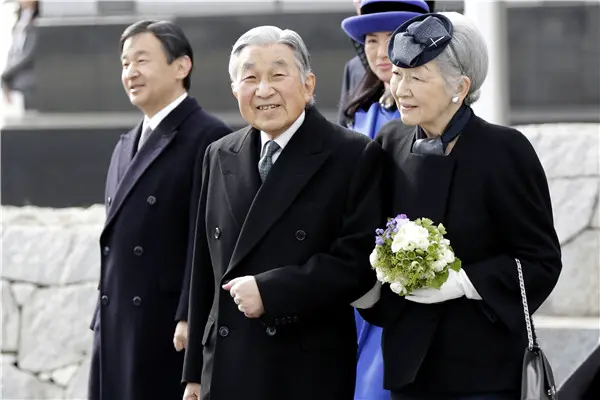The Japanese government has decided to submit a Bill to Parliament later this month to pave the way for Emperor Akihito to abdicate, according to a Yomiuri Shimbun report.
Quoting government sources, the newspaper said the Bill would allow for Prince Akishino to be treated as the crown prince since he would be the first in line to succeed after his brother, current Crown Prince Naruhito, ascends the throne.
After his abdication, the current emperor would be called "Joko", or Dajo Emperor, meaning retired emperor, according to the source.
In a rare televised broadcast, Emperor Akihito, 83, who has had surgery for prostate cancer and heart problems, expressed his wish last August to step aside in the near future, even though he stressed that he remained in good health.
Current law does not provide for an abdication, and if Emperor Akihito steps down from the Chrysanthemum Throne, he would be the first to do so in two centuries.
The Japanese government set up an advisory panel last September to study a possible legal mechanism to allow for his abdication. Its panel of experts will release a report on Jan 23, after which a debate on the matter between the ruling and opposition blocs will start in the Japanese Diet, according to the Yomiuri Shimbun.
Meanwhile, Kyodo news agency yesterday reported that Emperor Akihito and Empress Michiko are planning to make their first visit to Vietnam in early March, their first overseas trip since they visited the Philippines in January last year.
The news agency, quoting a source in the Imperial Household, said the royal couple was also expected to attend a memorial marking the sixth anniversary of the 2011 Fukushima disaster in March, a tree-planting ceremony in May, the National Sports Festival from late September to early October and a national event promoting conservation of the maritime environment in October.
The Yomiuri Shimbun hinted that the earliest possible date for the emperor to step down may be next year.
(THE STRAITS TIMES)
 简体中文
简体中文



